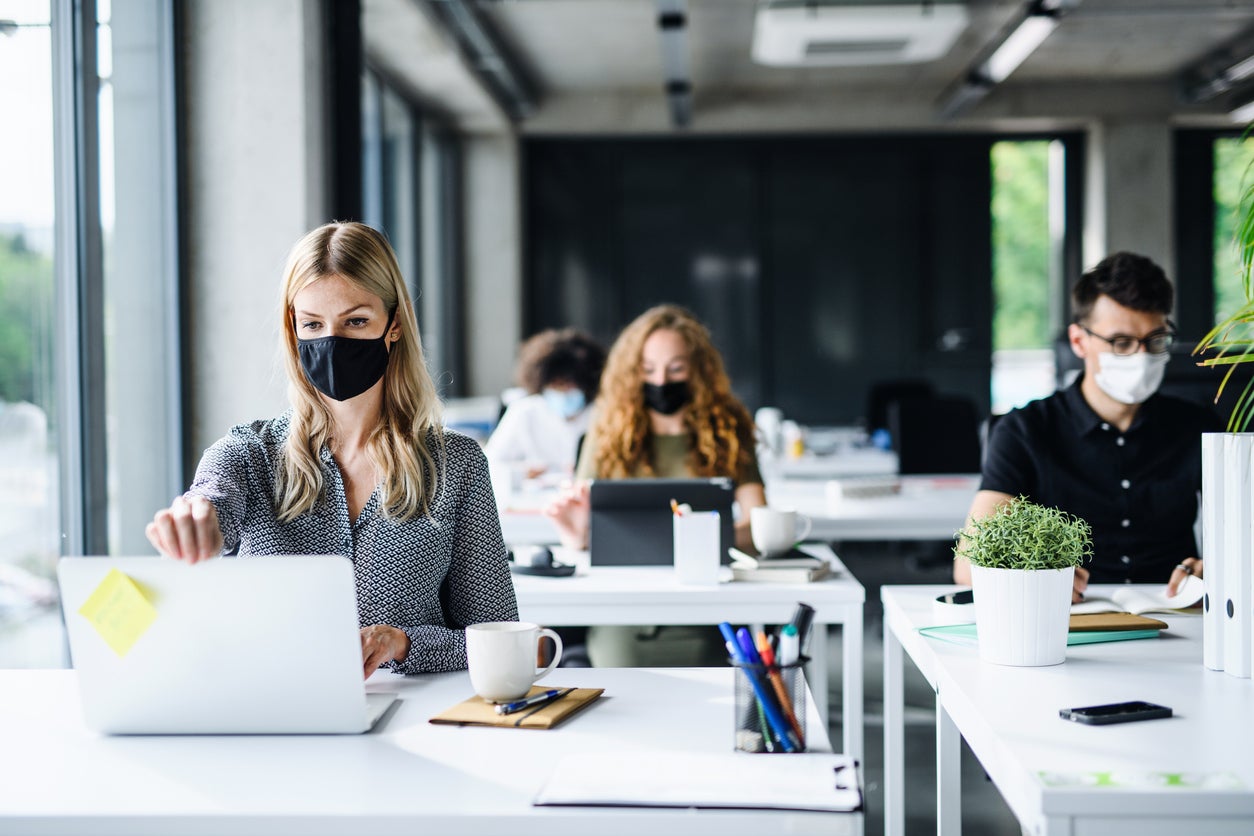Don’t get used to working from home just yet – bosses could revive office culture
Reports of the demise of the office may have been exaggerated, though it remains to be seen if a better business culture will emerge from the pandemic


Your support helps us to tell the story
From reproductive rights to climate change to Big Tech, The Independent is on the ground when the story is developing. Whether it's investigating the financials of Elon Musk's pro-Trump PAC or producing our latest documentary, 'The A Word', which shines a light on the American women fighting for reproductive rights, we know how important it is to parse out the facts from the messaging.
At such a critical moment in US history, we need reporters on the ground. Your donation allows us to keep sending journalists to speak to both sides of the story.
The Independent is trusted by Americans across the entire political spectrum. And unlike many other quality news outlets, we choose not to lock Americans out of our reporting and analysis with paywalls. We believe quality journalism should be available to everyone, paid for by those who can afford it.
Your support makes all the difference.This might seem surprising given recent news stories, the latest of which was the move to semi-permanent home working at Reach, the publisher of the Daily Mirror, the Express, and a bevy of regional titles.
It is planning to close most of its newsrooms, following high-profile moves by banking giants like Lloyds and HSBC to slash their office space. There has been a steady drip-feed of similar such announcements.
Why, then, does KPMG’s regular CEO survey suggest that the trend has peaked with less than a fifth (17 per cent) of the 500 global bosses it spoke to now looking to downsize their office space as a result of the pandemic? That number compares to 69 per cent who were looking to downsize in the August 2020 edition.
This is no cheap internet poll designed to pick up a headline, either. The 500 CEOs spoken to by the professional services firm come from 11 key global markets (including the UK) and all run businesses boasting annual sales of at least $500m (£430m), with a third of them topping $10bn.
KPMG found two main drivers in the results. The first is worries about data protection. This was cited as a top concern for around one in five (18 per cent) of those taking part.
Read more:
Moving sensitive information on to home, even public, networks represents a significant challenge, and risk, with far-reaching implications. It’s the sort of jack in the box that frequently emerges from sudden and rapid change. Stories of malicious hacks were breaking with alarming regulatory before the pandemic. The potential consequences companies face when targeted can be severe, especially if their customers end up getting hurt. Dealing with the problem will require considerable thought, and probably investment.
The second issue is demand from workers for at least some access to offices. That’s particularly true of younger employees, who can feel the lack of social interaction most keenly, and who are most in need of the training and/or mentoring that’s been hard to provide through lockdown.
A hybrid home/office arrangements should solve that problem. But you still need office space for them to operate successfully.
How much? How hybrid is hybrid... two days a week in the office? Three?
Well, that’s the question, isn’t it? The right answer, if there even is one, is still shrouded in a fog of uncertainty that looks set to linger into next year. Employer policy on it could also have a significant impact on a company’s ability to attract highly qualified staff.
Nearly half of the bosses (45 per cent) surveyed don't expect to see a return to normality until “sometime” next year, although it is hopeful (in economic terms) that their confidence appears to be on the rise.
Global CEOs are powerful people who are accustomed to being in control. The pandemic has stripped them of some of that. It’s not a risk that can be easily quantified, not least because the progression of the virus has been influenced by some very bad politics in places like the US, Brazil and (until recently) the UK. Ugly vaccine politics is also playing an increasingly detrimental role in global efforts to put a lid on it.
CEOs are therefore having to adapt on the fly, to make it up as they go along (which they probably won’t want to admit). This isn’t limited to what their offices will look like in a year’s time or whether they’ll even have offices.
The ones that come out of this smelling of roses won’t be worth their exalted salaries. Given the amount they are paid, there are very few of them who are. But they’ll have earned some spurs.
One way of helping their cause would be to listening to, rather than talking at, staff and the unions representing them.
It’s very easy to be cynical about corporate promises – pretty words can dominate over meaningful action on this front – but if CEOs want to build it, it’s entirely possible to see a better business culture emerging from the pandemic.
Join our commenting forum
Join thought-provoking conversations, follow other Independent readers and see their replies
Comments